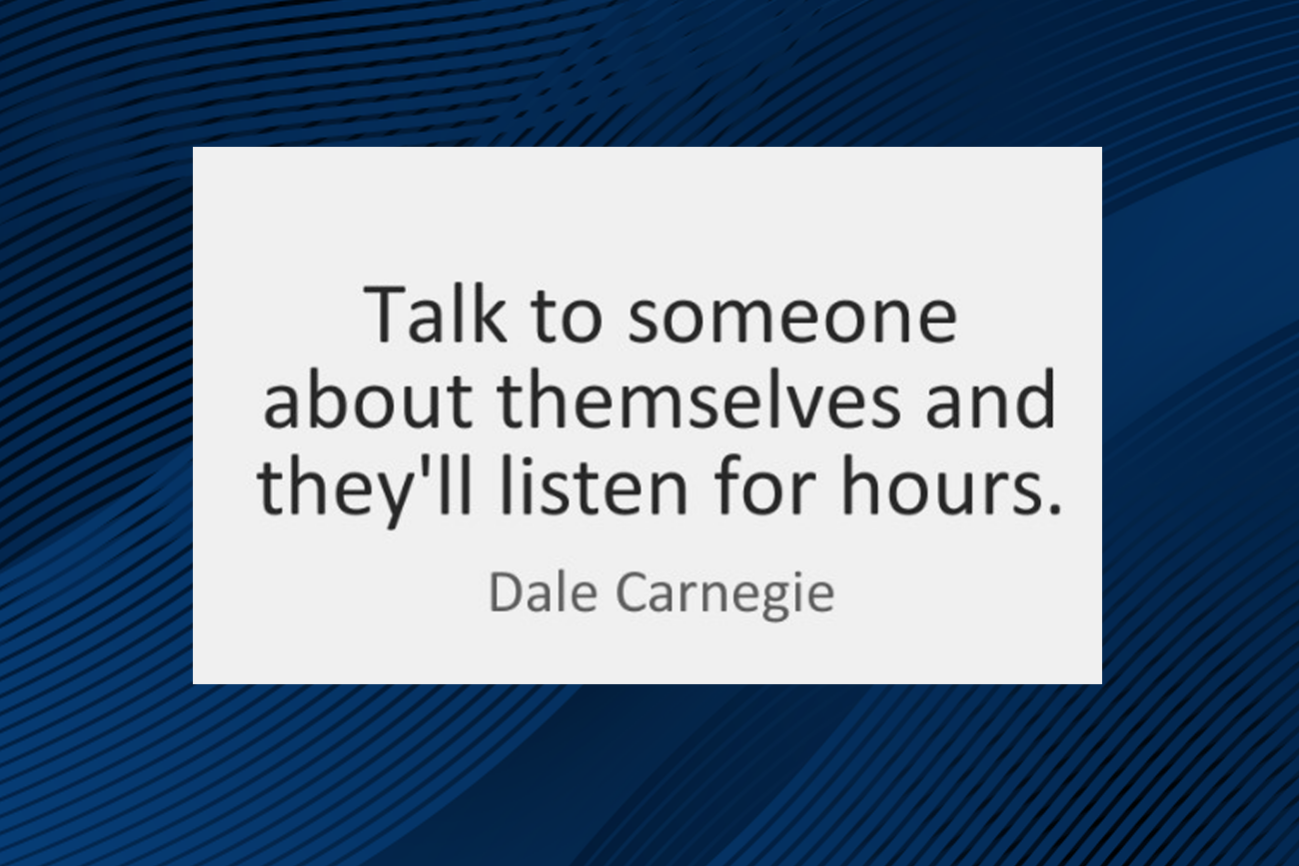Listening (not talking) to staff, recruits, customers and public leads businesses to problem identification and problem solving—while enhancing reputation
The art of listening is a common trait that successful organizations—and the leaders within them—generally recognize as important.
Listening is a full-contact sport that requires a great deal of energy—you have to hear, see, comprehend and focus. As a result, even with two ears and one mouth, people are often inclined to talk more and listen less. Just as eyesight can be a perfect 20/20 without having “vision,” you can hear without ever really listening. Similarly, your audiologist may confirm that you have perfect 0 dB (decibel) hearing—but that is a long way from being a perfect listener.
Balanced communication includes ACTIVE listening. We are in an information based, interactive and “loud” culture; it seems everyone is shouting their news from the rooftops via advertising, media and social media channels in an attempt to out-talk the competition. In this type of market environment, cultivating a “quiet” approach may seem counterintuitive.
ReputationUs advocates that listening is vital to be a successful organization—and your company’s reputation depends upon it. Moreover, impacts of miscommunication through not listening can become apparent quite quickly from staff, customers and your product or services. Listening as an essential and proactive component of reputation management reveals vulnerabilities, as well as opportunities for your company.
LISTENING REVEALS YOUR REPUTAION
We say that brand is what you say about business. Reputation is what others say about you, your company, your products and your services. Inside your organization, this includes conversations among executives, staff and partners. Outside your organization it includes your recruits, customers, constituents, influencers and the public.
Whether gaining business, quality employees or remaining competitive “your reputation precedes you.” Now more than ever, it is mission critical to know what your reputation is. Ask your employees and customers their opinions to get insights into how they view your business, products, services, culture and reputation.
These “ears on the ground” strategies can help:
- Surveys: Gather feedback the classic way to identify what your company is doing right, and more importantly, where there are vulnerabilities and room for change. You also learn more about your employees and customers, and what they think of your business, your products or services, competition and, most importantly, their needs.
- Focus Groups: Talk about your business and products with a targeted group to get direct feedback, with more in-depth insights than from surveys.
- Case Studies: Dive deeper into a customer or their individual story to obtain insights that may not be readily apparent from just sales or marketing data points.
- One-on-one conversations: Discussions may resemble a more formal interview, or simply observe customer behavior and asking them follow-up questions.
- Social media: Listening to concerns and building relationships with your customers on your own platforms can help identify problems immediately. If people review you on outside platforms, like Yelp, monitor them regularly.
- Website forms: Clearly denoting an area on your website where customers can submit their candid opinions—and your company follows up—shows that you are engaged in active listening.
I HEAR YOU, BUT AM I LISTENING?
While online and social media tools have made listening technically easier, the most effective strategy to gather and understand feedback is a combination of the above approaches. Having a reputation audit done by a third-party, qualified professional can assist you with an initial assessment of what people are saying about your company—inside and outside—to help you strategically evaluate the results. A third-party objective partner can also identify poignant questions you may not think to ask.
IDENTIFY VULNERABILITIES
Listening is learning. Often a company becomes too focused on looking for positive responses online, instead of listening to negative responses and digging in to learn how to do things better.
Listening yields insights into the reputation of your company’s business, products and services, or its overarching culture. Having big points of dissension arise among staff—or an elephant in the room—without a forum for listening, may simply mean that people are gossiping with their friends at the water cooler as your reputation is slowly being eroded.
Proactive reputation management through active listening does not mean giving an answer as soon as you hear the issue. This is responding rather than listening.
Working strategically across initiatives, a third-party reputation management company conducts a full company reputation analysis—at the same time they work to develop a proactive response framework. This means you stay involved in the listening process and have an efficient response that is tailored accordingly. This is an exercise that frankly should not be performed internally by the company, but rather outsourced.
INCREASING OPPORTUNITIES AND INNOVATION
By proactively listening to your customers’ sentiments, needs, and what they are getting or not getting from the competition or the market, you identify opportunities. Listening actively leads to innovation and ultimately improves the ability to pivot your products and services.
All this listening bolsters meaningful innovation of products and services; the business will give customers what they want; what they value. It also reveals untapped markets, as well as identifies susceptibilities. This ultimately improves your reputation by positioning your company as a true steward and leader of the business environment of which you are a part.
Businesses have an unquenchable desire to tell their story to their audience. But what if your company became known for listening? REAL LISTENING! Gaining a reputation as a listener further solidifies trust inside and outside your company.
In his timeless book, “How To Win Friends and Influence People,” Dale Carnegie famously stated, “Talk to some about themselves and they’ll listen for hours.” While your competition is all talk, your business can win customers and staff by purely listening—and hearing—what’s being said. Your reputation as a listener will precede and reward you.








